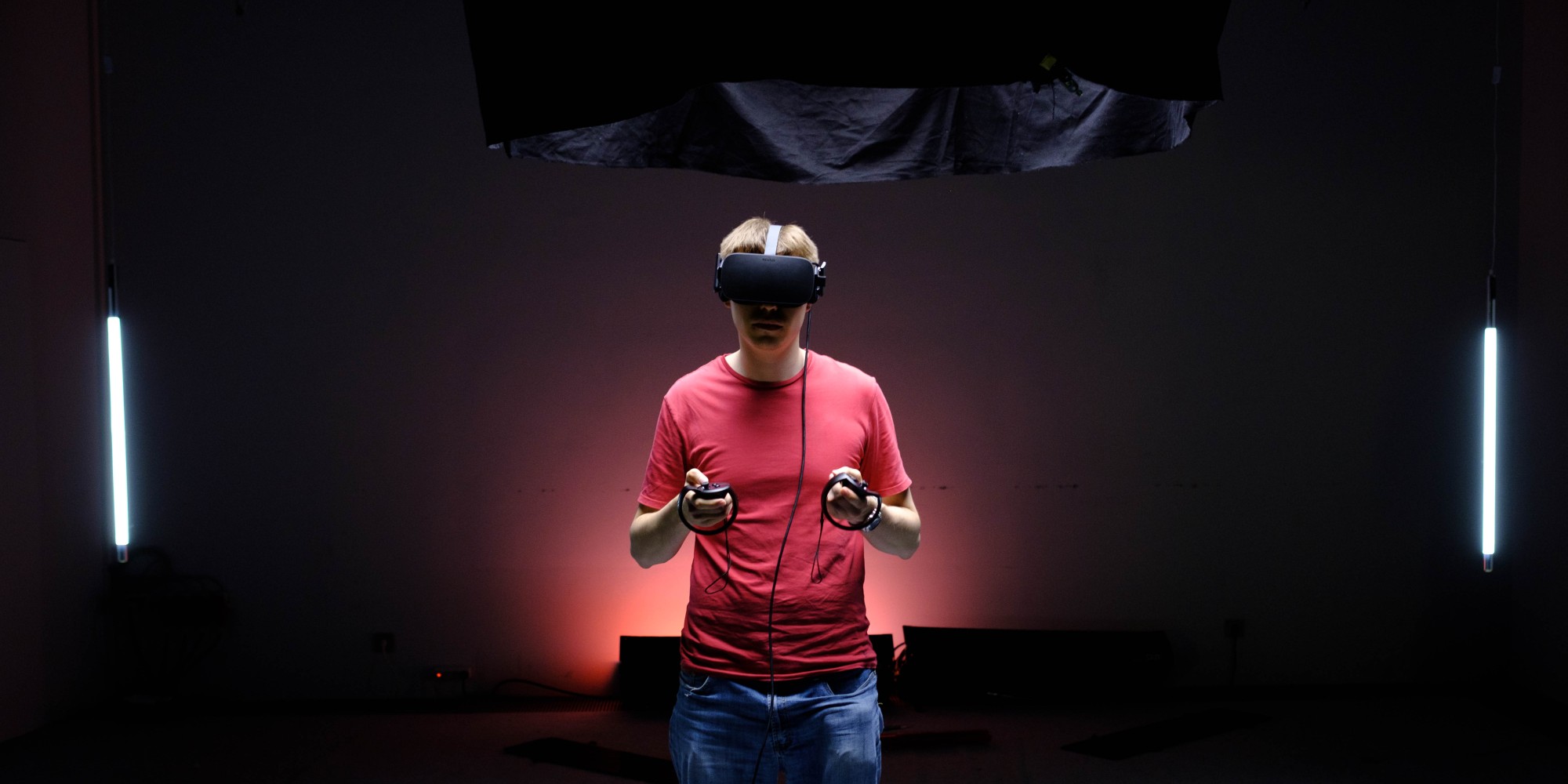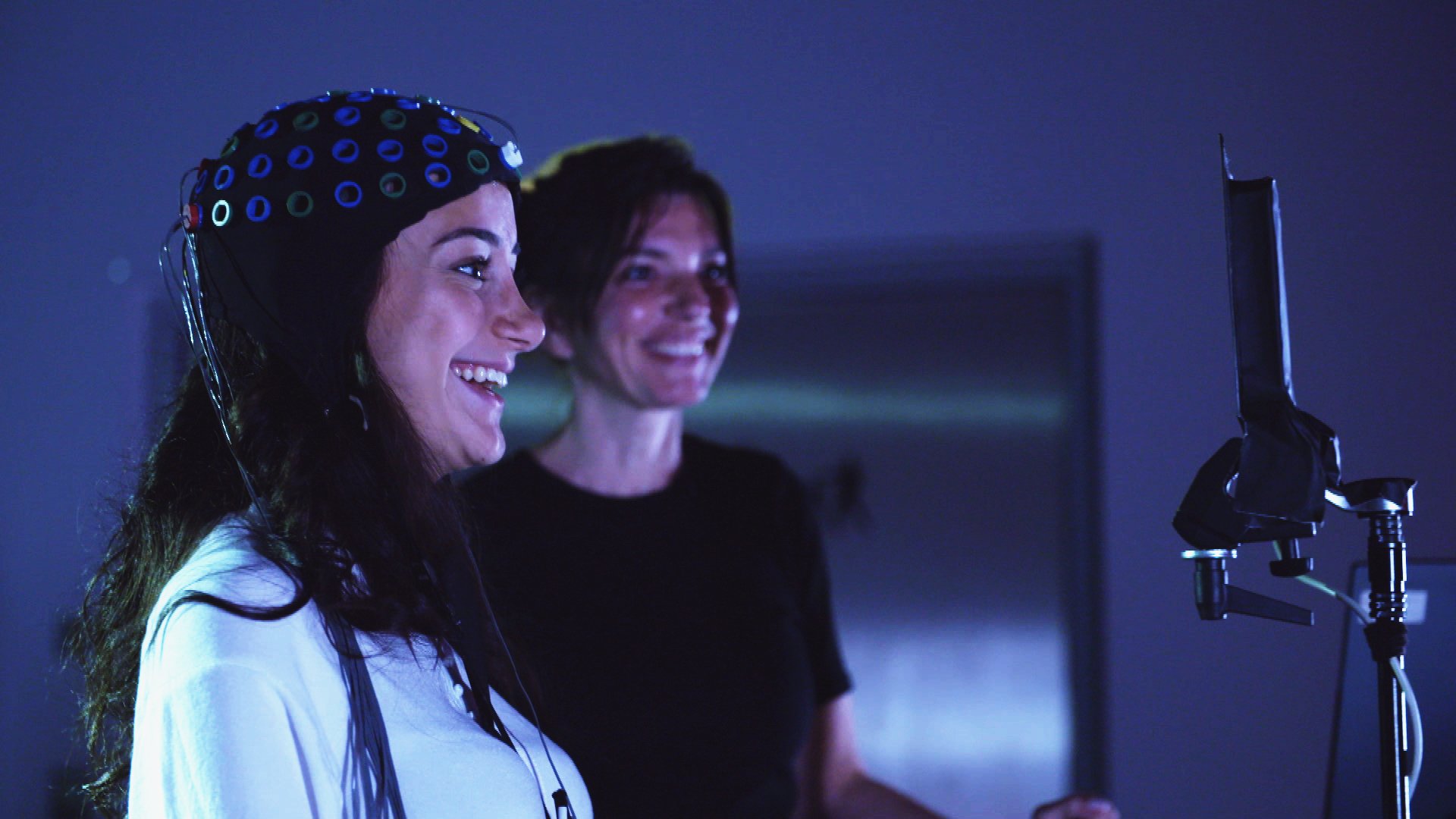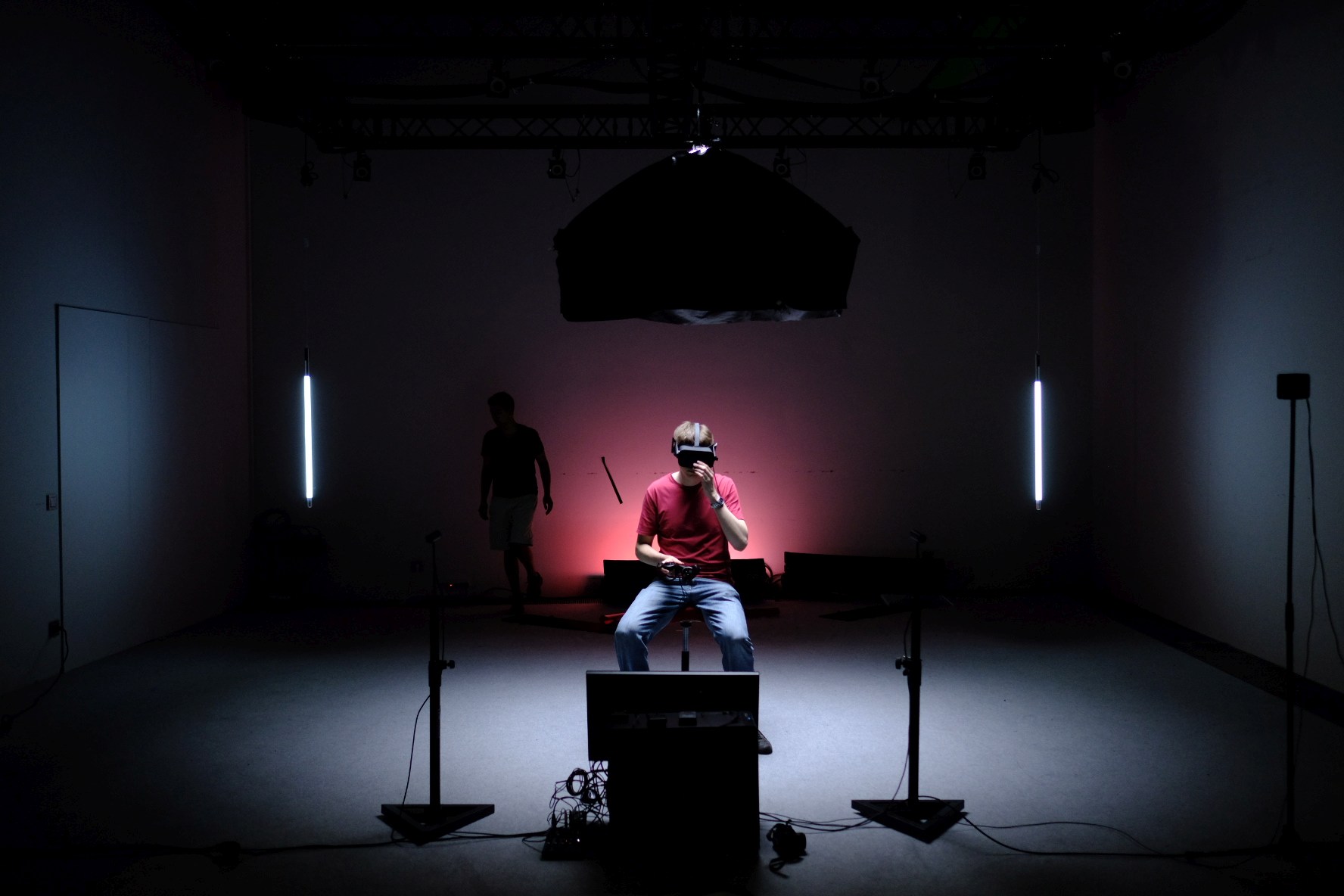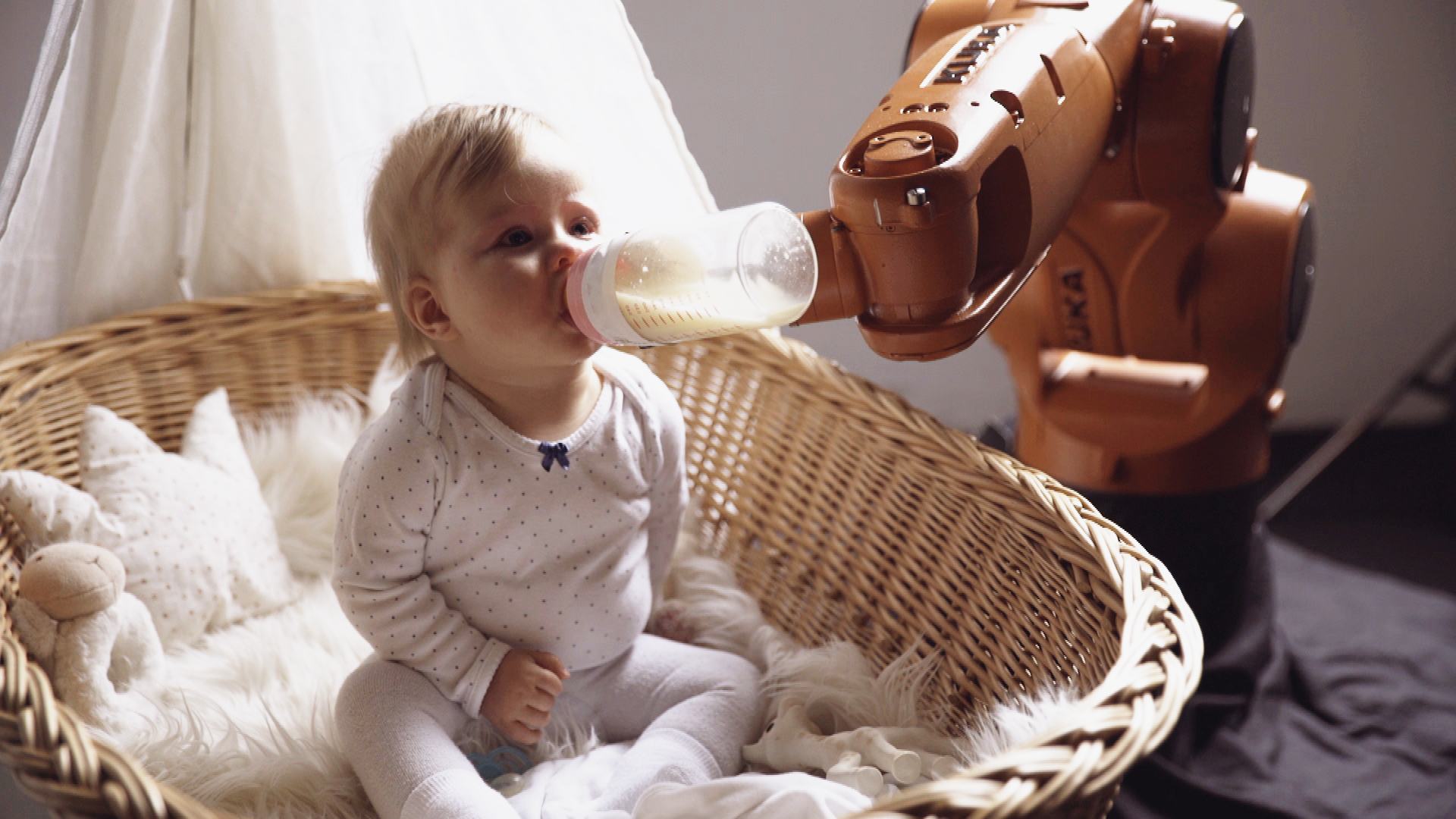How long will we actually still be human? Will we all, at some point, have virtual friends, enjoy sex with robots more than making love to a real person, and hack our own body? Homo Digitalis is a web series about the ultimate future question: What is the digital revolution doing with us human beings? The web series so named and produced by BR, ARTE and ORF consists of seven episodes (with English subtitles) that go in search of answers to these questions by international experts in the field of futurology.
The point of departure of this highly diversified tour featuring chief protagonist Helen Fares is the Ars Electronica Futurelab in Linz. The Ars Electronica Futurelab not only served as a filming location — but, with its expertise and know-how in the field of creative futures research — was also a scientific partner of the production team. Together, we designed scenarios, delineated the respective episodes’ topics and discussed the experiments and prototypes, which the protagonist was about to encounter and conduct on camera.
The protagonist Helen Fares begins her search at the Ars Electronica Futurelab, gets acquainted with virtual friends, learns to steer a drone with her brain and to hack her own DNA. Encounters with experts in the US, Japan and Britain provide additional international context to the posed question: What insights does Helen derive from her journey through futuristic technologies? Are we Homo Digitalis evolving into a new species: Homo Digitalis?
Homo Digitalis also is a scientific experiment. Together with the Fraunhofer Institute for Industrial Engineering IAO, BR, ARTE and ORF developed a playful test with the basic question “How long are you still human?”. The users can compare themselves with others through a real-time analysis and determine how much parts cyborg they want to become in the future. The Fraunhofer IAO evaluates all answers scientifically and publishes them in the spring of 2018 in the form of a scientific study. The results of the study are also published in the Homo Digitalis documentation. It summarizes the most important findings from web series and online test for the television audience.
In addition to the presentation online and at the Ars Electronica Festival, the series is screened at the Ars Electronica Center for mediation purposes.
To learn more about the part the Futurelab played in the production of the web series, read the interview with Christopher Lindinger on the Ars Electronica Blog.

Homo Digitalis: What’s the Digital Revolution Doing to Us?
“Homo Digitalis” is a series of seven episodes that present various scenarios of life in the future. Christopher Lindinger, Director of Research & Innovation at the Ars Electronica Futurelab, talks about the part his division played in this Web series produced by BR, ARTE and ORF.
Homo Digitalis is a production of Bayerischer Rundfunk and Bilderfest GmbH in co-production with ARTE and the ORF. Scientific partners include the Ars Electronica Futurelab and Fraunhofer IAO. The Süddeutsche Zeitung is German media partner.
Credits
Directors: Christiane Miethge, Nils Otte
Host: Helen Fares
Camera: Kyrill Ahlvers, Tenzin Sherpa
Sound: Gidon Lasch, Nils Otte
Editors: Tim Sprado, Daniel Bluhm
Animation and graphics: Anna Hunger, Sven Schulz
Illustrations: Benny Nero
Programming: Bernd Paulus, Phuoc Le, Lena Fischer
Producer, Web series: Andreas Martin
Producer, online test: Miriam Mogge
Production director: Laura Sages
Creative director: Christiane Miethge
Scientific director: Kathrin Pollmann
Team Ars Electronica Futurelab: Christopher Lindinger, Martina Mara, Maria Pfeifer, Roland Aigner, Clemens Francis Scharfen, Peter Holzkorn, Michael Platz, Nicole Grüneis, Peter Freudling, Erika Jungreithmayr, Manuel Selg
Producers: Dietmar Lyssy, Marcus Uhl
Editor, BR: Thomas Sessner
Editors, ARTE: Katja Ferwagner, Katja Dünnebacke, Aurélie Marx
Editor, ORF: Robert Glashüttner, Siegfried Steinlechner
Produced by Bilderfest GmbH and BR—Bavarian Broadcasting; co-produced by ARTE and the ORF—Austria Broadcasting Company.
Thanks to Fraunhofer Institute, IAO and the Ars Electronica Futurelab.



